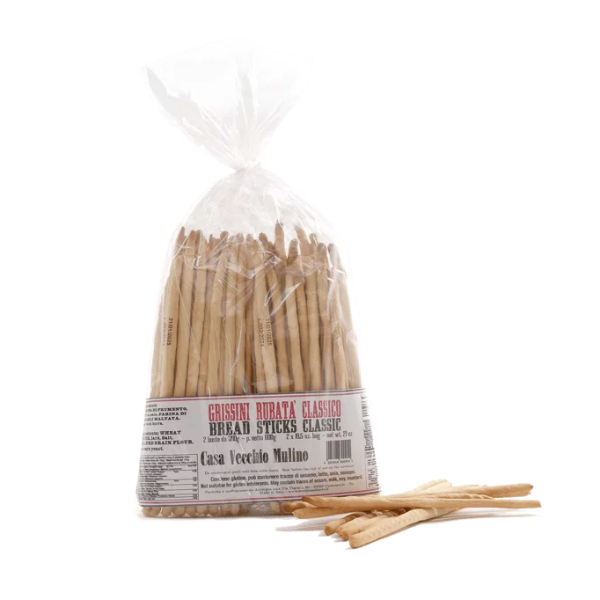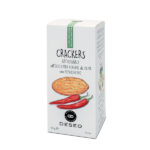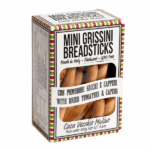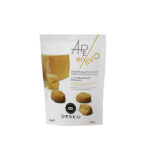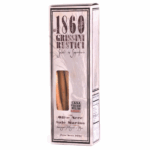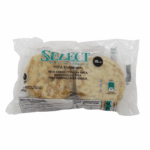No products in the cart.
Grissini Rubatà Classico 600g Casa Vecchio
Units per package: 6Sold by: ea
Login to see prices
SKU: CVRC
Category: Savoury
These Casa Vecchio Rubatà Breadsticks trace their roots far back into history. Legend in fact has it that the rubatà was first baked at the court of Savoy in 1679 to nourish the sickly Vittorio Amedeo II, who was unable to digest the soft part of bread. The new breadsticks proved hugely popular, so much so that Napoleon Bonaparte would later organize a courier service to bring what he called les petits bâtons de Turin to Paris for his personal consumption.
Their name means “fallen” in the Piedmontese dialect, referring to the technique of letting the freshly hand-rolled breadsticks fall to the rolling board to make the dough more compact. They are instantly recognizable for the knobbly rustic appearance resulting from them being prepared by hand. A must on any Italian dinner table, they complement pasta dishes, soups and casseroles and also make an excellent snack.
Family business Casa Vecchio has been producing artisanal breadsticks in Piedmont since 1860. Their breadsticks quickly became so famous throughout the area that long lines of customers waited for the daily baking of the rubatà, inhaling the delicious aromas coming from the oven that wafted hundreds of metres down the road. Six generations on, the family is still honing and refining its baking skills, which are now being enjoyed around the world. The Casa Vecchio passion for quality is evident in every product, including the Casa Vecchio Rubatà Breadsticks.

